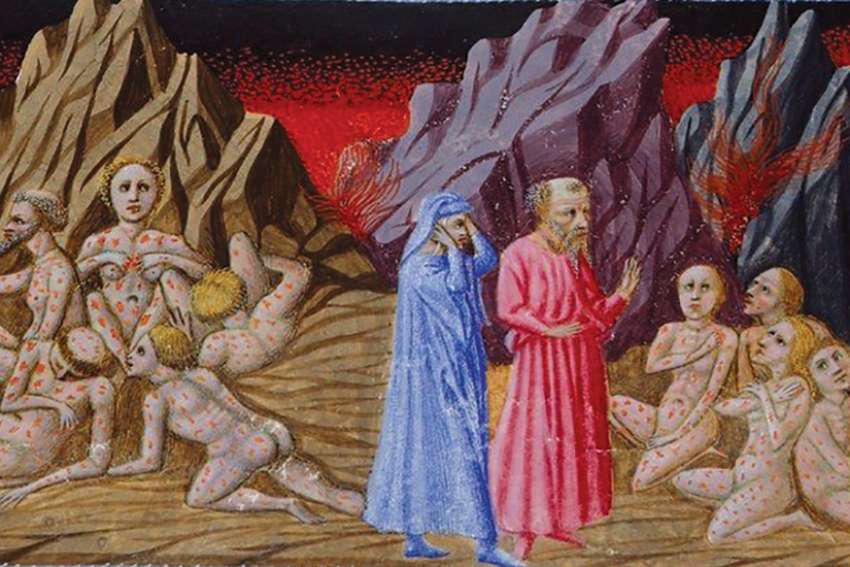The Divine Comedy is composed of 14,233 lines that are divided into three “cantiche” or books — Inferno (Hell), Purgatorio (Purgatory) and Paradiso (Paradise or Heaven).
This was my second attempt. The first time I was disoriented after just a few lines. Not a good start. I decided to put the Divine Comedy under the heading: Life is Too Short.
Then I had the good fortune to hear a lecture series on Dante’s masterwork. The speaker was Bishop Robert Barron on his Word On Fire Institute site. Bishop Barron is a wonderful speaker and writer. His crystal-clear reflections will make you feel smarter and holier all at once. They are worth searching out.
His first lecture, on “The Inferno,” gave me the knowledge I needed to start reading again. This time I had an orientation that helped open this great work. My confusion turned into clarity. I also was made aware that this is a very Catholic work.
After I finished it occurred to me that this would be perfect reading for Lent.
Consider the first lines of The Inferno:
“Midway along the journey of our life
I woke to find myself in a dark wood,
For I had wandered off the straight path.”
Meditate on this for a bit. Think about whether at any point in your life you have felt lost … that you had wandered away from what was good and sunk into the mire.
There were times in my own life when I was utterly lost and broken. I couldn’t figure out how I got there but I knew that I needed help to find the light. That help turned out to be the Catholic Church, thanks be to God. But even now I need to remind myself that the righteous path is easy to lose.
In the Inferno, Dante, aka the Pilgrim, knows he has lost his way. A guide shows up, the poet Virgil. Virgil shows the depths of Hell, a place in Dante’s telling is a multi-dimensional horror show. Some of the tormented are former popes.
After hitting the bottom of Hell, the guide brings the Pilgrim up through Mount Purgatory and its many levels divided into the deadly sins. The Pilgrim finds the higher he goes the easier the climb — easier because he is shedding sin with each step. The guide then turns the Pilgrim over to a new guide. I won’t attempt to describe the beauty he finds as he nears the beatific vision in Paradise.
The Divine Comedy is not the easiest work to read. Dante makes numerous references to mythology and Italian politics. While some readers may have a handle on mythology (I barely do) only a rarified few are conversant in 13th-and 14th-century Italian politics (I definitely am not).
There are editions and guides to make the journey easier and enjoyable. Penguin offers the Divine Comedy in three paperback editions. The translation by Mark Musa retains Dante’s poetic rhythms. He also has notes at the end of each Canto, or chapter, that explain the obscure references but also add some strong spiritual insights.
There are also editions in plain English that lose some of the poetic splendour but make reading a breeze. It might be wise to start with one of these editions.
I would also recommend How Dante Can Save Your Life, a lovely book by Rod Dreher, he of The Benedict Option and Live Not by Lies. I read it before even reading Dante and still got a lot out of it. I’m going to read it again now that I’ve read the Divine Comedy.
For those seeking deep spiritual meaning, I recommend Fr. Paul Pearson’s three-volume work: Spiritual Direction from Dante. His books on the Inferno and Purgatory are out now and the final edition, on Paradise, will be out later in March. Fr. Pearson is a member of the Toronto Oratory.
There is a lot of rich theology in Dante, and Fr. Pearson’s books will help you find it. He will also help you find your own need for atonement. After all, isn’t that what Lent is about?
(Lewis is a regular contributor to The Catholic Register.)


